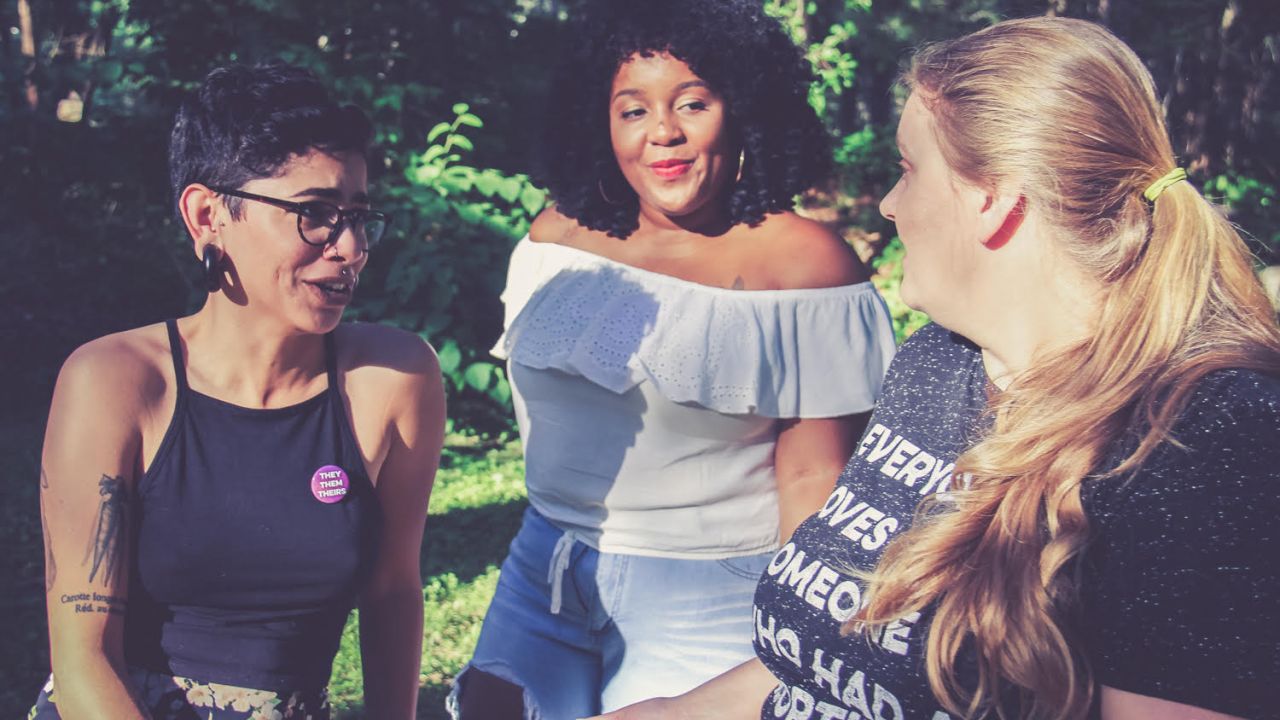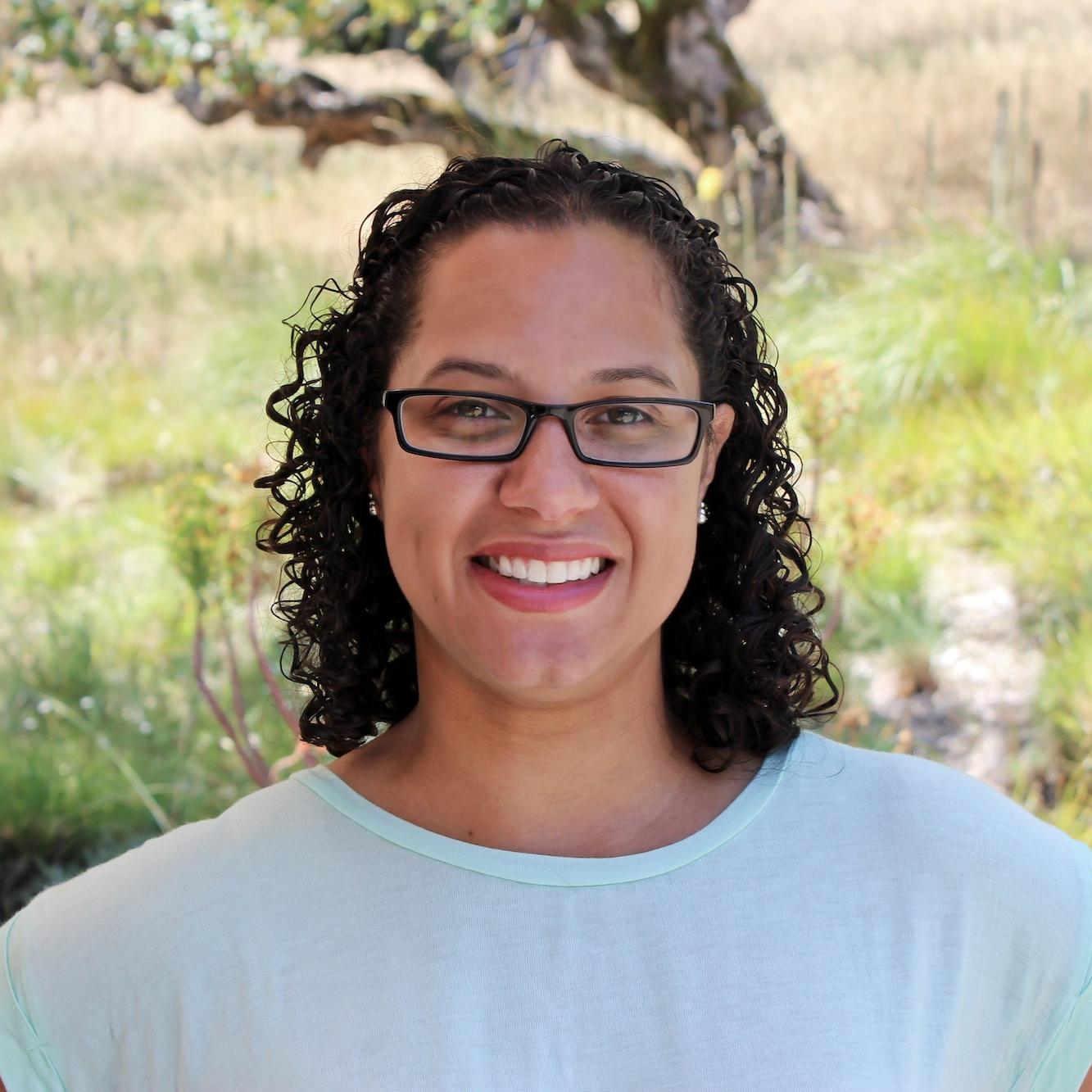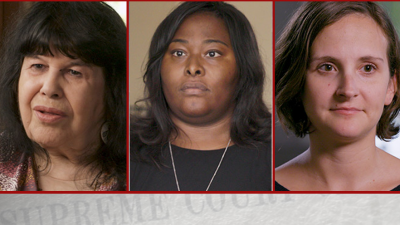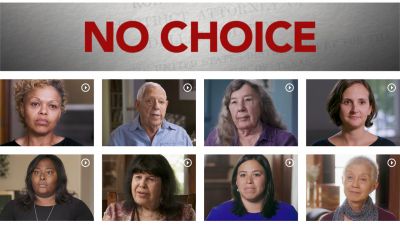
Image courtesy of the National Network of Abortion Funds
Storytelling is a long-held tradition in many communities to pass on collective wisdom, memories, tales and experiences among loved ones and future generations. Abortion storytelling has been around as long as abortion itself, about 4,000 years, and at one time served as a way for people to find out which roots or herbs can induce an abortion or find a provider, particularly under heavy restriction. Now, abortion storytelling is becoming more common in media, pop culture and communities as a way to eradicate stigma and build compassion for those who choose to terminate a pregnancy.
Abortion is a common experience, yet there’s a lot of silence around it due to the shame and stigma our society puts on people who’ve had abortions. To build understanding, more of us are speaking out. Your story is an undeniable truth and might radically shift how someone who had an abortion reflects on their own experience, the stigma they faced and to help challenge the stereotypes and misinformation others have heard about people who have abortions. After hearing the powerful stories in #NoChoice, you might feel ready to share your own abortion story with loved ones or on social media. Here are a few things to think about as you make the decision to share:
Deciding what to share
As you think about sharing your story, think deeply about what you want to share and with whom. Do you want to tell a friend to get the weight of isolation and the silence off your shoulders, or will you share more publicly with your community or on social media? Start with what feels most comfortable. Remember, you don’t have to share everything. Think about what you want people to know about your decision. What are the dominant narratives or misinformation about abortion and people who have abortions that you want to push back on? Sometimes people also discuss the cultural environment and messages they received from their family, friends and media about abortion. What was it like to navigate the numerous barriers to access — was there someone whose compassion helped you through your process? Think about what feels easier and more natural to share and what feels more difficult to share. That can help you decide which parts of your experience you might want to keep to yourself.
Your feelings are valid
Abortion experiences are as diverse as the people who have them. Our experiences are complex, and we experience a wide range of emotions. Sometimes those emotions are in response to the circumstances surrounding our pregnancies and sometimes they’re in response to dealing with the stigma associated with abortion. Research shows relief is the most common feeling after an abortion, 95 percent of us do not regret our decision, and 99 percent feel that it was the right decision. Sometimes people feel guilty for not feeling guilty, some feel happy because they received warm-hearted care from their provider and others can feel sadness over the circumstances, yet be sure of their decision. And you can feel all of those things at once. We’re strong and complex people. We can handle it. All of your feelings are valid.
Sharing back and questions
When you are vulnerable, people are often vulnerable in response. This often happens when sharing abortion stories because many times people aren’t able to meet someone else who had an abortion, let alone share their story so openly. Be prepared to receive stories in response to yours. Sometimes people who hear your story might be curious to learn more. This can be a powerful moment to build connection and have what the The National Network of Abortion Funds refers to as heart-to-heart abortion conversations. Answer the questions you feel comfortable answering — you don’t have to answer all questions you’re asked, especially ones that make you uncomfortable.
Community support
After you share, be sure to plan a bit of self care and relaxation. Being vulnerable and sharing a deeply personal story can be freeing and exert a lot of energy. Reach out to a trusted loved one who you can call on in case you want to talk about what happened when you shared. Take time to relax and care for yourself gently.
Unfriendly responses
Because abortion stigma is pervasive in our society, people may respond to your story with attacks on your character and unkind words — especially online. Under no circumstances do you deserve to be called hurtful names or slurs. Take care of yourself and step away from conversations or social media discussions that refuse to recognize your humanity or treat you with respect.
Other ways to share
Not ready to share publicly, but just want someone to listen? That’s fine, too! Call All-Options at (888) 493-0092. All-Options is a pregnancy talkline with trained advocates who will listen to you, without judgement, and support you before, during and after your pregnancy, abortion, adoption and parenting decision, no matter how long ago or recent it is.
If you want to share your abortion story online, visit We Testify, a program of the National Network of Abortion Funds that seeks to build the power and leadership of abortion storytellers, particularly those of color, those from rural and conservative communities, those who are queer identified, those with varying abilities and citizenship statuses, and those who needed support when navigating barriers while accessing abortion care.




